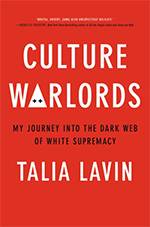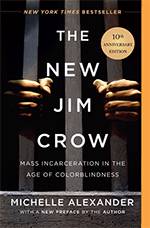OnPoint Subscriber Exclusive

Françoise Girard
Says More…
This week in Say More, PS talks with Françoise Girard, former president of the International Women’s Health Coalition.
Project Syndicate: In 2018, you stressed the importance of normalizing abortion, which occurs “in every country and within every socioeconomic class,” and of overcoming widespread misconceptions, including that criminalization reduces the number of procedures. What can health-care providers and human-rights activists do to improve the public’s understanding of abortion globally? To what extent will US President Joe Biden’s repeal of the “global gag rule” bolster such efforts?
Françoise Girard: Abortion providers and women’s rights activists can use a range of approaches to influence public opinion. For starters, it is essential to share the facts. One in four women in the United States will have an abortion by age 45, for example, and unwanted pregnancy rates are higher in countries that restrict access to abortion.
But, in terms of impact, statistics have their limits. This is where storytelling comes in. During the campaign to decriminalize abortion in Ireland, many came forward to describe their harrowing experiences being forced to travel to England to terminate a pregnancy. The abortion ban was no longer an abstract idea to debate; it was a policy with very real consequences for people’s family, neighbors, and friends. This helped to turn the tide of public opinion, leading to overwhelming support for decriminalization.
Girard recommends
We ask all our Say More contributors to tell our readers about a few books that have impressed them recently. Here are Girard's picks:
-

Decolonization and Afro-Feminism
by Sylvia Tamale
Tamale, a Ugandan lawyer and scholar, explores concepts of Afro-feminism as keys to challenge coloniality – that is, the Western knowledge systems rooted in racism and sexism that continue to dominate African education and media. She taps philosophies such as Ubuntu (“the interconnectedness of all things and people”) and cites women’s significant social and political roles in pre-colonial times, as well as the more fluid gender roles in many pre-colonial African communities, to propose a pan-African, non-patriarchal, non-heteronormative ethos rooted in economic and social justice.
-

Culture Warlords: My Journey into the Dark Web of White Supremacy
by Talia Lavin
In this book, Lavin documents her undercover journey through online white-supremacist communities, from the now-infamous Proud Boys to Christian extremists, neo-Nazis, and incels. She shows that the desire to perpetrate extreme violence on African-Americans and other people of color is a key motivator of these movements, and that their fixation with “blood purity” is at the root of their concomitant anti-Semitism and anti-feminism. Lavin witnesses in real time as these actors’ enthusiasm for “cataclysmic, blood-soaked civil war” in America grows, presaging the January 6 insurrection at the US Capitol – and more such events in the future.
-

The New Jim Crow: Mass Incarceration in the Age of Colorblindness
by Michelle Alexander
As relevant today as it was when it was published ten years ago, this book shows how the war on drugs was created from whole cloth to reverse the progress of African-Americans that the civil-rights movement had made possible. Alexander shows how the war on drugs enabled and encouraged mass incarceration, mandatory sentencing, the militarization of police, overpolicing of communities of color, and the disenfranchisement of felons. And she demonstrates the catastrophic impact this has had on African-American families and communities. She thus makes clear that addressing racist policing requires ending the war on drugs.
From the PS Archive
In “Women and Girls Hold the Key to Universal Health Coverage,” Girard warns that ignoring sexual and reproductive needs and rights is putting a global development goal out of reach. Read more.
In “Zika and Reproductive Rights,” Girard highlights how restrictive abortion laws can aggravate the impact of a viral outbreak. Read more.
Around the web
Girard shows how the philanthropic community’s preoccupation with short-term, measurable outcomes distracts from what really works. Read the commentary.